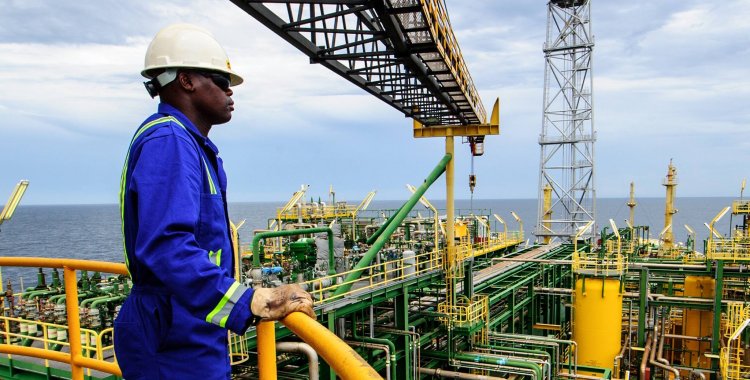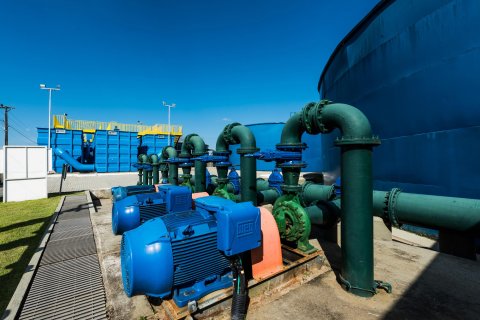The 13 OPEC ministers, led by Saudi Arabia, and their ten allies, led by Russia, agreed to "further reduce production by between 600,000 and one million barrels per day", writes the French news agency, France-Presse (AFP), citing a source close to the discussions.
The official statement of the meeting, available on the OPEC website, makes no reference to the global number of production cuts, specifying that, in the case of Angola and Nigeria, production will have to be limited to 1.11 million and 1.5 million barrels per day, respectively.
"In accordance with the decision of the 35th ministerial meeting of OPEC and non-OPEC, the finalization of the analysis by the three independent sources (IHS, Wood Mackenzie and Rystad Energy), the level of production that can be achieved by Angola, Congo and Nigeria is as follows: Angola with 1.110 million barrels per day, Congo with 277 thousand barrels per day and Nigeria with 1.5 million barrels per day", reads the statement published on the website at the end of the meeting.
Thursday's meeting had been postponed due to resistance from African countries in accepting the cut in production allowed under the agreement between the 13 OPEC countries and the 10 allies, but international news agencies report a 'victory' of the Saudi Arabia, which maintains the objective of reducing production to increase oil prices.
In addition to the cut announced on Thursday, Saudi Arabia is expected to extend its voluntary reduction of one million barrels per day beyond 2023, according to the same source cited by AFP, which reports on Saudi Arabia's attempt to convince partners Africans to share the burden of reduced production.
Nigeria and Angola, the two largest oil producers in sub-Saharan Africa, produce around 1.5 and 1 million barrels per day, respectively, and want 'authorization' from the cartel to produce more, taking into account the prospects for an increase in production starting next year in both countries.
The divergence has lasted since June this year, when a reduction in production objectives for these countries was determined, at the same time as an increase in exports from the United Arab Emirates was agreed due to its large reserves, writes AFP.
Angola rejects cutting quotas
Despite the organization's decision, Angola rejected cutting quotas. The governor of Angola at OPEC said that Luanda rejected the quota assigned by the cartel, which predicted a reduction, and will maintain the target of 1,180 thousand barrels per day for 2024.
Speaking to Lusa, at the end of the 36th ministerial meeting of this organization of 23 countries, in which production quotas for its members were decided from January 1, 2024, Estevão Pedro said that "Angola does not agree" with the decision.
"We had already presented our data, taking into account the country's capabilities, but in the meantime the decision (by OPEC+) went against the amount we predicted", he highlighted.
OPEC+ presented a target of 1,110 thousand barrels/day, while Angola wants to produce an additional 70 thousand barrels.
According to the official, during the meeting, Angola reaffirmed its position, but contrary to the unanimity that has been usual, OPEC decided on a quota in which Angola does not agree.
"We do not see ourselves in the 1,110 thousand barrels/day that is reflected in the document [OPE statement] and we continue with our proposal which is 1,180 thousand barrels/day. This amount is what we will make the effort to produce during the year 2024", he reinforced.
Estevão Pedro highlighted that Angola had presented a quota in accordance with what it can and intends to produce, indicating that a letter expressing this position had been formalized.
"What was missing at the meeting was the commonly used criterion, which is unanimity", he lamented, considering that Angola's position should "be accepted", complying with the principle of sovereignty of member countries.
As for Angola's continued membership in OPEC, he says that any future decision will depend on the response to this letter.
"We will wait for the reaction, first we will have feedback from OPEC, everything that has to happen 'a posteriori' is 'a posteriori'", he stated in his statements to Lusa.
The official highlighted that Angola has always worked within OPEC to stabilize the market, "which benefits producers and consumers", so the organization should accept what the Portuguese-speaking country asks for.
The other members agreed with the cuts, said Estevão Pedro, justifying that the countries' problems are different.
"Angola's intention is to produce according to its capabilities and the quota allocated by OPEC is far below Angola's possibilities", he added, stressing that Angola had previously requested a higher quota and "tried to make it more flexible", presenting a new target, more low.
Members of the cartel that represents the majority of world oil production clashed last week over production targets for African countries, including Angola and Nigeria.
Saudi Arabia and its allies wanted to impose lower quotas on the oil production of African countries, in an attempt to increase prices for next year, but they were opposed by these countries, namely Angola, which intends to increase oil production and revenues.
OPEC is made up of Algeria, Angola, Equatorial Guinea, Gabon, Iran, Iraq, Kuwait, Libya, Nigeria, Republic of Congo, Saudi Arabia, United Arab Emirates and Venezuela, joined by ten more allies, including Russia, Mexico, Azerbaijan and Kazakhstan, and Brazil, which is expected to join the group in January 2024.







